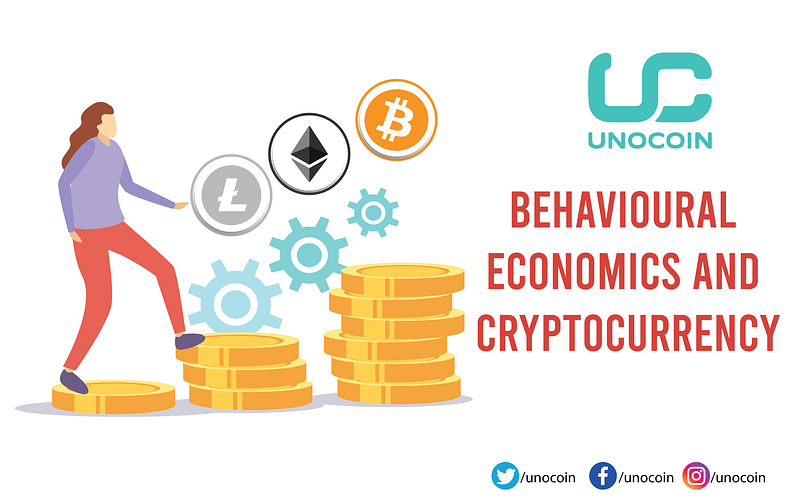How economics became behavioural, why we are not the rational beings we think we are, and how our biases affect our understanding of cryptocurrency

How economics became behavioural
Our instinctive biases always have a major role to play when making decisions in our lives and sometimes even create barriers on our way to objectivity. An economist will tell you that human beings are rational actors and when posed with many choices, they always make the choice which optimises their satisfaction. This is the rational actor model according to which humans are capable of making rational choices by weighing the costs and benefits of all choices available to them.
However, this has been challenged and refuted by many behavioural economists who believe that this is not the case as human beings can sometimes make irrational choices as our choices are influenced by various cognitive biases, our emotions and surrounding influences. Behavioural economics often has an impact on the choices that we as consumers make. A famous author might choose to sell his book at Rs 600 but feels that it is expensive for the category he’s marketing it in so he chooses to market it for Rs 800 for the first few weeks and then quickly reduces the price to Rs 600 which would make the people falsely believe that they’ve saved Rs 200 from the original price and encourage them to buy it.
This is also relevant in other choices we make in our lives. In the world of finance, many people are slowly making the shift to cryptocurrencies but many are apprehensive of making this shift due to their irrational fears and a lack of knowledge. This is when loss aversion bias, as discussed by Tversky and Kahneman, comes into practice, according to which people prefer avoiding losses by opting for pursuits through which they receive gains. The risk to choose a different path despite having higher returns gets often overridden by our bias to conform, which leads to significant difficulties on the path to usage of cryptocurrencies.
There is also a status quo bias in humans which makes them attach higher value to the things they already possess which leads to them being averse to try new things.
A move towards total cryptocurrency transactions would entail a move away from credit card transactions and this ‘loss’ from the traditional method of transactions is also what keeps people from making the transformation.
Another bias that comes to play while taking the path to cryptocurrency is the confirmation bias, according to which humans seek, research and interpret information in a way that confirms their inherent biases, So people sometimes see the negative aspects of cryptocurrency which are highlighted by media (suffering from its own set of biases and trying to influence public opinion) such as huge price fall in a specific cryptocurrency and these lead to them remaining in their comfort zones and not taking the leap towards cryptocurrency.
Even though Cryptocurrency has become a buzzword everywhere, the use of cryptocurrencies is still not widespread and the awareness of its exact benefits is still quite limited. People still consider digital currencies as being riskier than traditional forms of payment systems. This leads to a risk aversion bias among people and leads to them taking the ‘safer’ path of transitional forms of financial transactions without being aware of the costs or benefits of cryptocurrencies.
As a result, more awareness needs to be spread regarding cryptocurrencies for it to become a widespread choice of transaction. This could only be done if more research is undertaken in the field of blockchain technology and cryptocurrencies for people to understand the benefits of cryptocurrency and for it to become more popular in India.



